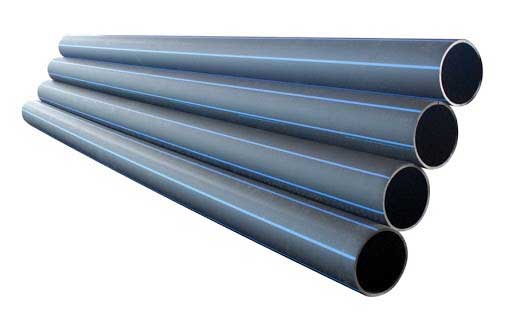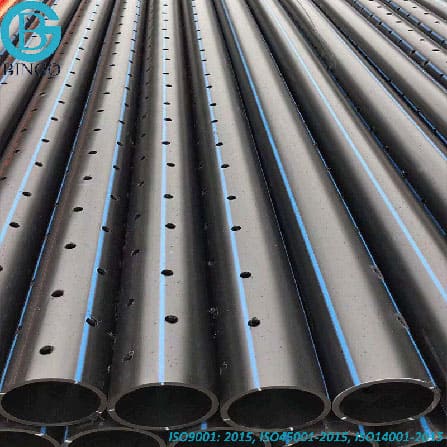Why hdpe pipe in stock Midland TX Is Valuable for Local Industries
Wiki Article
Understanding the Secret Benefits of HDPE Pipeline for Water and Wastewater Management
The use of HDPE pipeline in water and wastewater monitoring provides countless benefits that merit factor to consider. Its outstanding durability and long lifespan make it a recommended choice for lots of projects. In addition, the product's resistance to rust and chemical damage boosts its dependability in different settings. Nonetheless, the advantages extend beyond simply durability and resistance. Exploring its cost-effectiveness and ecological impact reveals much more compelling factors for its widespread fostering in contemporary facilitiesExceptional Toughness and Durability

HDPE pipeline stands out for its phenomenal longevity and long life, making it a preferred choice in water monitoring systems. Built from high-density polyethylene, these pipelines can hold up against considerable stress and stress and anxiety, guaranteeing trusted efficiency gradually. Their durable nature permits them to sustain extreme ecological conditions, including temperature changes and dirt movements, which can create various other materials to fall short.
The lifespan of HDPE pipelines usually surpasses 50 years, offering an affordable service for communities and sectors alike. In addition, the product's light-weight properties streamline installment, reducing labor prices and durations. This toughness reduces the need for constant repair services or substitutes, better enhancing its financial charm.
In water administration applications, the reliability of HDPE pipes implies fewer interruptions and enhanced solution continuity, making them indispensable to sustainable infrastructure development. The combination of resilience and long life solidifies HDPE's role as a cornerstone in efficient water management solutions.

Resistance to Rust and Chemical Damages
While lots of materials yield to rust and chemical damages in time, HDPE pipes display amazing resistance, making them ideal for different water administration applications. This resilience stems from the molecular framework of high-density polyethylene, which is naturally non-reactive and does not corrode like steels or degrade from direct exposure to severe chemicals. Consequently, HDPE is extremely reliable in atmospheres with aggressive substances, such as wastewater systems that may contain acids, bases, and natural solvents.
In addition, HDPE pipes can hold up against environmental factors such as soil level of acidity and saline problems, additionally boosting their viability for diverse applications (hdpe pipe suppliers Midland TX). Their capability to keep structural stability with time reduces the threat of leakages and failures, which is crucial in making certain the safety and security and dependability of water circulation and wastewater administration systems. The resistance to rust and chemical damage markedly adds to the overall efficiency and durability of HDPE piping options.
Cost-Effectiveness and Economic Benefits
When considering the economic ramifications of water management systems, the cost-effectiveness of HDPE pipes comes to be apparent. These pipelines supply reduced installment and upkeep costs compared to standard products like metal or concrete. Their light-weight nature simplifies transportation and setup, causing reduced labor expenditures. In addition, HDPE pipes exhibit a long lifespan, often surpassing half a century, which equates to less replacements and long-term savings.Additionally, the resistance of HDPE to deterioration and chemical damages decreases the demand for costly repairs and replacements. The pipelines also support effective water circulation, reducing energy costs connected with pumping systems. By reducing leaks and water loss, HDPE pipelines add to considerable financial advantages for districts and industries alike. In general, the initial investment in HDPE piping can produce significant monetary returns over the life-span of the water administration system, making it a sensible choice for sustainable facilities growth.
Ecological Sustainability and Decreased Impact

Convenience and Flexibility in Installation
Due to their unique buildings, HDPE pipelines use amazing adaptability and flexibility in installment, making them suitable for a broad range of applications. Their light-weight nature enables much easier handling and transportation, minimizing labor costs and installation time. HDPE pipelines can be curved and shaped to fit numerous surfaces and job needs, which is particularly advantageous in testing settings.In addition, their resistance to rust and chemical damage enables installment in varied setups without the requirement for specialized safety coatings. The ability to fuse joints creates a continual, leak-free system, enhancing the general stability and integrity of the setup. HDPE's adaptability additionally fits ground motion, lowering the risk of damages in areas prone to changing soil. In general, these characteristics make HDPE pipelines not only functional yet likewise a recommended option for water and wastewater management systems.
Regularly Asked Inquiries
How Does HDPE Pipeline Contrast to PVC in Water Management Applications?
HDPE pipe provides premium adaptability, resistance to deterioration, and toughness contrasted to PVC. Its lighter weight facilitates less complicated installation, while its lengthy life expectancy lowers substitute expenses, making HDPE a recommended selection in water administration applications.What Is the Life-span of HDPE Piping Under Regular Problems?
Under typical problems, HDPE pipelines can have a life expectancy varying from 50 to 100 years. Their longevity and resistance to corrosion add to their lasting performance in various applications, making them a trusted option for infrastructure.Are HDPE Pipes Recyclable After Their Life Span?
Yes, HDPE pipelines are recyclable after their life span. American Plastics HDPE Pipe Manufacturing. They can be processed and repurposed into new items, substantially decreasing environmental influence and promoting sustainability within the sector, making them an eco-friendly choice for piping optionsWhat Is the Setup Process for HDPE Piping?
The installation process for HDPE pipes entails website prep work, trenching, pipe blend or mechanical joining, backfilling, and stress screening. Proper techniques assure a long lasting and reliable system for moving water and wastewater successfully.Can HDPE Pipes Be Utilized for Both Safe And Clean and Non-Potable Water Equipments?
Yes, HDPE pipes can be made use of for both safe and clean and non-potable water supply. Their adaptability, durability, and resistance to corrosion make them appropriate for various applications, making sure secure and effective transport of water in different contexts.Report this wiki page